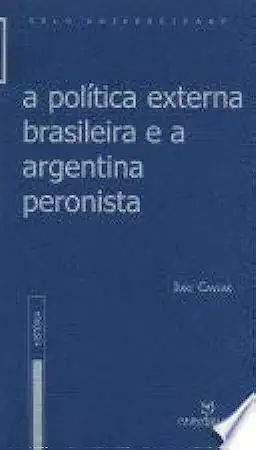
Brazilian Foreign Policy and Peronist Argentina - Iuri Cavlak
Brazilian Foreign Policy and Peronist Argentina: A History of Diplomatic Relations
Introduction
Brazil and Argentina are two of the most important countries in Latin America. They share a long history of diplomatic relations, dating back to the early days of their independence. In this book, Iuri Cavlak provides a comprehensive account of Brazilian foreign policy towards Argentina during the Peronist era (1946-1955).
The Early Years: Cooperation and Conflict
The early years of Brazilian-Argentine relations were marked by both cooperation and conflict. On the one hand, the two countries shared a common interest in promoting economic development and regional integration. On the other hand, they also competed for influence in the region and had different views on a number of international issues.
The Peronist Era: A New Era in Brazilian-Argentine Relations
The election of Juan Perón as president of Argentina in 1946 marked a new era in Brazilian-Argentine relations. Perón was a charismatic leader who sought to transform Argentina into a major world power. He also had a strong interest in promoting closer ties with Brazil.
The Vargas-Perón Alliance
The Vargas-Perón alliance was a key feature of Brazilian-Argentine relations during the Peronist era. The two leaders shared a common vision of a strong and independent Latin America. They also worked closely together on a number of international issues, including the creation of the United Nations Economic Commission for Latin America (ECLA).
The Cold War and the Peronist Era
The Cold War had a profound impact on Brazilian-Argentine relations during the Peronist era. Brazil and Argentina were both caught up in the global struggle between the United States and the Soviet Union. The two countries also had different views on the Cold War, with Brazil aligning itself more closely with the United States and Argentina pursuing a more independent foreign policy.
The End of the Peronist Era
The Peronist era came to an end in 1955 when Perón was overthrown by a military coup. The coup was supported by the United States and Brazil, who were concerned about Perón's increasingly authoritarian rule.
The Aftermath of the Peronist Era
The aftermath of the Peronist era was a period of instability and uncertainty in Brazilian-Argentine relations. The two countries continued to compete for influence in the region and had different views on a number of international issues. However, they also began to cooperate more closely on economic and trade issues.
Conclusion
Brazilian Foreign Policy and Peronist Argentina is a comprehensive and well-researched account of Brazilian foreign policy towards Argentina during the Peronist era. Cavlak provides a balanced and objective analysis of the complex relationship between these two important Latin American countries. This book is a valuable resource for scholars and policymakers interested in Brazilian-Argentine relations and the history of Latin America.
Why You Should Read This Book
If you are interested in Brazilian foreign policy, Argentine history, or Latin American studies, then this book is for you. Cavlak provides a comprehensive and well-researched account of Brazilian-Argentine relations during the Peronist era. This book is a valuable resource for scholars and policymakers interested in Brazilian-Argentine relations and the history of Latin America.
Order Your Copy Today!
Brazilian Foreign Policy and Peronist Argentina is available now from all major booksellers. Order your copy today and learn more about this fascinating period in Latin American history.
Enjoyed the summary? Discover all the details and take your reading to the next level — [click here to view the book on Amazon!]